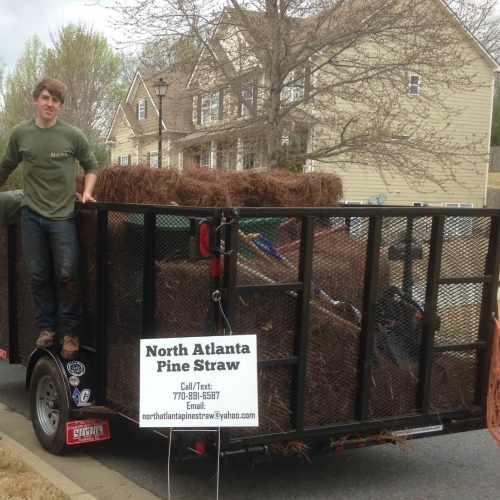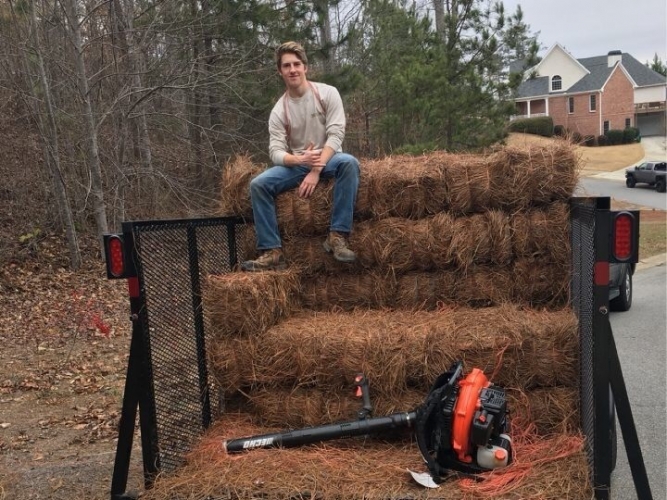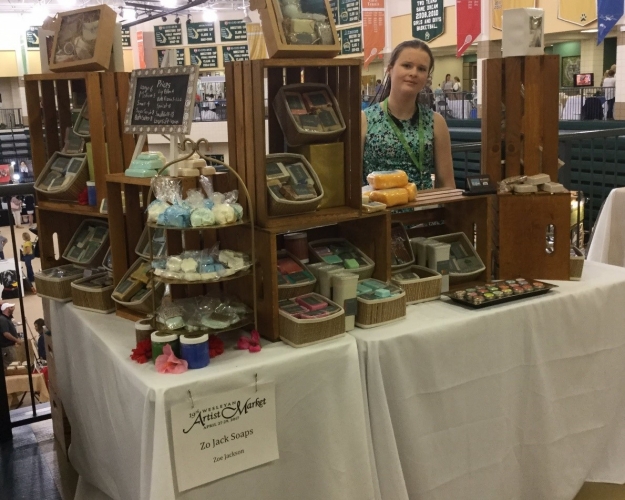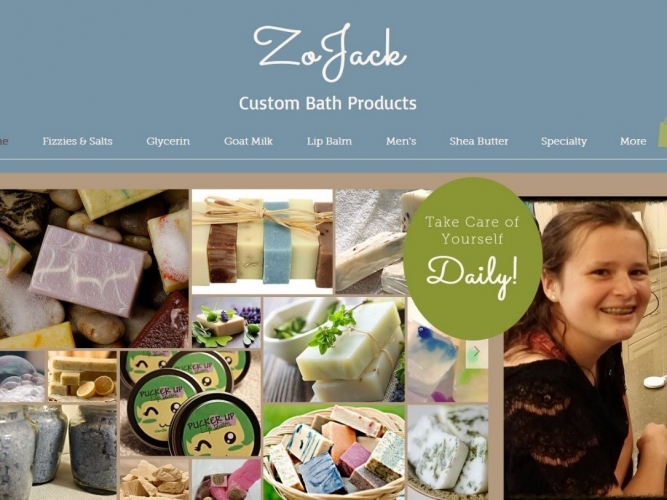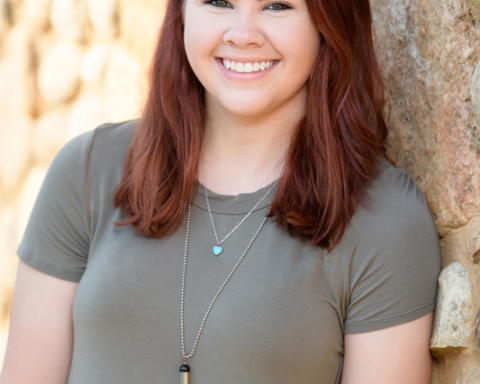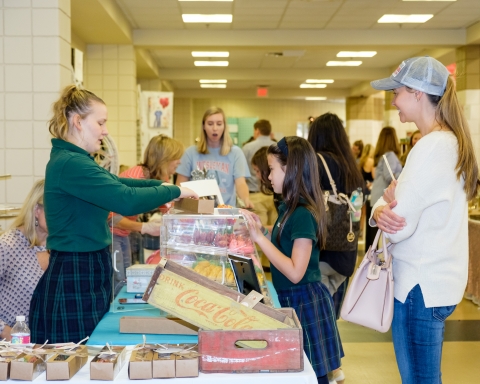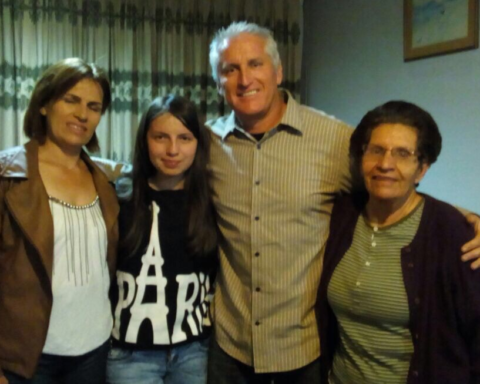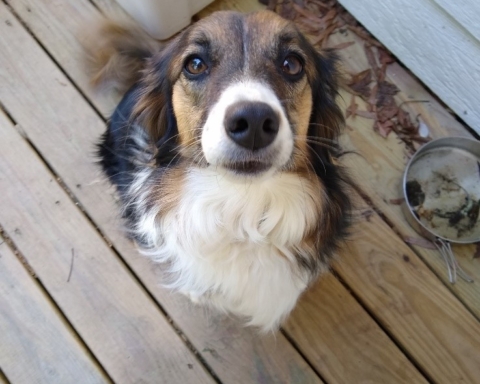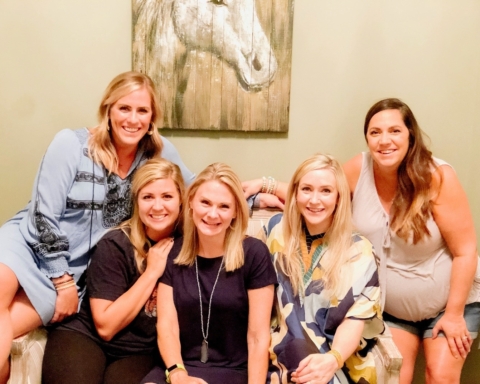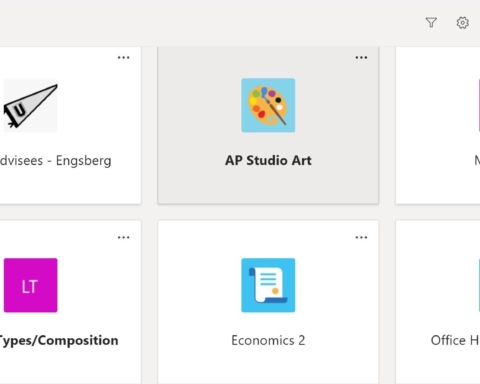As students progress through high school, they have taken on more responsibility. Studying, keeping up with relationships and committing to projects outside of school are often at the forefront of their minds. A practical issue that affects most activities is money; without cash, people cannot go out to eat, donate to their church, attend many events or buy gifts for their friends. While most teens go out and get a job, a few enterprising minds had the idea to create their own businesses.
Senior Jack Mills is part of a two man team, operating a pine straw laying business around Peachtree Corners. Originally working for Metro Atlanta Pine Straw, run by Wesleyan alumnus Grant Frerking, the young entrepreneur decided that independence may be a smart move. “We figured we have free time, so we might as well do something good with it,” said Mills.
They got to work on their business model. “My partner and I were in science together, so science class became pine straw class,” said Mills. “We’d talk business and schedule jobs.” When asked about the most difficult part of starting their own business, Mills had a definite answer. “Getting the first clients. But once you get your first clients, they roll in.”
It is no wonder that he had trouble garnering interested clients–searching “pine straw companies in Atlanta” online yields pages upon pages of professional, licensed companies who can do their jobs on a much bigger scale than a pair of young adults. Using their knowledge and familiarity of the area, they turned their weakness into a strength. “We stand out because we’re two teenagers,” explained Mills. “Adults like to see audacious, ambitious young boys trying to make some money instead of being a ‘typical teenager.’” It would make sense then, that their customers are often families around Peachtree Corners.
Seeing the success of their company, it seems to be good advice. But why even go through all the trouble of creating a business instead of taking time to relax before college? “We should build our foundation now, when we have the time,” said Mills. But who will keep the company alive when he leaves? His partner hinted that his brothers were interested in investing some of their time.
ZoJack Soaps, LLC is an officially recognized company which deals in handmade bath products. It is owned by junior Zoe Jackson, a “Master Soap Maker,” according to the business cards she hands out to potential clients. With an official website, email, logo and slogan (“Custom bath products to help you get ZoJack’d up!”), it would be hard to dispute such a claim. But where does one learn such a rare skill, and where do they find a market?
“My mom learned how to make [soap] from her great aunt. They made the harsher kind which isn’t pretty, but I took it from there,” Zoe explained. “There are more soap people than you’d think at festivals. I never realized how popular it was until I started doing it.” She referred to Splash Festivals, run by a Norcross group. She says she knows the head of the festivals because of her regular participation. Even so, her start was right here at Wesleyan, in our own Artist Market.
“It was the end of seventh grade, and the Artist Market went pretty well. My mom is a lawyer, so she handled the paperwork for making it official.” Seventh grade is an incredibly young age to start independent work by anyone’s standards, so it may have been hard to reach out to customers who are used to dealing with adults. Wesleyan helped to greatly expand her clientele. “Some of my parents’ work friends want to buy, and some of the festivals have returning customers, who are coming back for products that I make.”
The rapid growth led to a wider array of products, all complementing her titular soap. “I started with just soap, sugar scrubs and bath fizzies, but now I have bath salts, lip balms and body butter. One of the band teachers even ordered a bunch of lip balm from me, and I put the band logo on it.” Such a gift grants a unique flair to school spirit; not many band teachers can keep spirits up and lips well moisturized with student made, school-sponsored lip balm. While the current semester remains too busy for intense time commitment, Jackson has several plans cooking for the future. “I’ve gotten a few emails from businesses where they might sell my soaps. There is one around the Goldrush Festival up in Dahlonega, Ga.”
Similarly to Jackson, senior Sarah Moon also found success at the Wesleyan Artist Market. Currently commissioning pet portraits ranging from $150 to $220, Moon has turned her passion for art into a means to sustain herself. “I’ve always been into painting. I was in AP Art last year, and [again] this year,” she said. “I want to make a store one day with vintage clothing, art and coffee. I’ve always wanted it, and I thought the Artist Market was a good way to start that. It was a way to test it out.” It was specifically the Market in 2017 that gave her the idea to start selling pet portraits.
“I had this one piece of Gracie Mitchell’s dog that had the whole ‘Dogue’ magazine cover hanging in my booth. All these people walked by and said, ‘Can you do one of our dog?’” She saw the potential for business and artist improvement and took a chance. Subsequently, an explosion of growth proved tough for the suddenly very popular painter. “I had maybe five from the Artist Market. Then people wanted some of their friends or family, and then I had around 12 for Christmas.”
To handle the influx of customers and prove her capabilities, she had to change her usual efforts to be more efficient. “I’m much more organized when I go about it. I have it planned step by step to get it done.” When asked what entrepreneurship had taught her, Moon did not hesitate in her answer. “It taught me how to run my business. I have a website, I take orders and I come out with new products. I advertise on whatever platforms I have; I have the ‘mom network’ on Facebook and the ‘kid network’ on Instagram. I use what I have to be successful in what I do.”
When asked if it is worth it, she was just as sure. “Even though working on painting is really difficult, it’s also fulfilling. I’m always creating something; even if it’s another dog painting, I’m still adding to my portfolio of what I love to do.”
Senior Daniel Salyers, also an artist, offers his services as a freelance video editor to whoever needs help with creative or promotional endeavors. One day, he might be animating a UFO coming down from the sky, and the next he may be correcting the color of a business’ promotional video. It is a unique task which only became relevant within the last half century, leading to a lot of misconceptions from some of his less than savvy customers.
“People don’t understand how long it takes to film and edit,” he said. “Some people are like, ‘Hey, make this movie by tomorrow,’ and I just have to say that I can’t do that. A common rule is that every minute of film is about an hour of editing.” So, if a friend asks for their seven-minute video to be edited before the next day, Salyers has his hands full if he accepts. This is less commitment compared to the longer and more complex projects he takes with outside clients.
“It’s taught me patience and to go at it again. The more challenging a project, the prouder you are when you’re done. It’s the best feeling in the world.” When occupied on other projects, Salyers finds inspiration for his next Wesleyan video. “There are times when I experiment with something, and I’ll think, ‘I wonder how I can use this for the school.’”
With plans to go into the film industry after college, Salyers is content to edit what he can for now. “If I could use my talents to make a little bit of cash on the side while I’m still in high school, why not just go for it? I enjoy it, and I get to meet a lot of cool people that are interested in the same stuff as me. It’s fun.”
While all these students work hard to balance school and a business, they unanimously agreed they would prefer it to any other job. “I’m a creative person, so sitting at a desk for hours at a time was really draining,” said Moon, referring to her previous job inside a local tennis shop. Mills and Jackson said with great satisfaction that they get to choose their own hours, while Salyers and Moon were glad to be sharing their talent past the boundaries of just school and home.
When asked if they would like to give any advice to aspiring young entrepreneurs, they were happy to help. “Don’t get overwhelmed from the start, and don’t give up on the learning curve. Once you learn, it’s incredible what you can do,” said Salyers. Both Moon and Mills, despite being interviewed separately, responded with three words: “Just do it.” All four sounded confident that if they could do it, anyone can.

